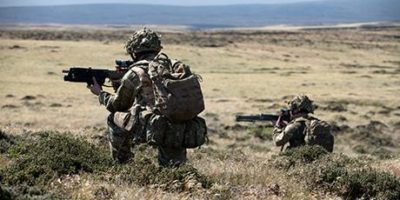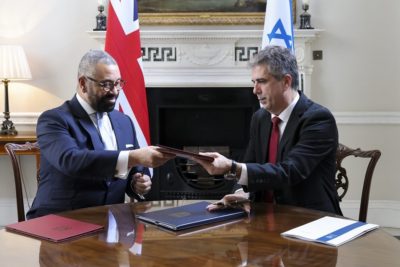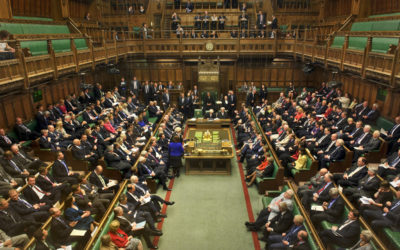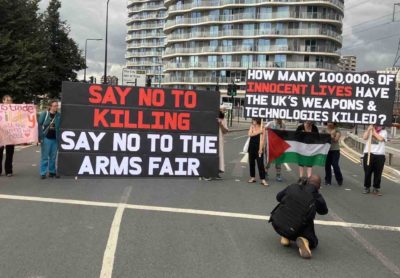Creating barriers to justice

The Overseas Operations Bill is going into its third reading in the House of Commons this week. Though much of the criticism of these far-reaching proposals has surfaced only as the Bill was first debated in Parliament in September, it has since been vociferous.
The committee charged with scrutinizing the bill has heard evidence from military, legal and charitable sectors and received written evidence from a range of others. Despite expert analysis on the fundamental flaws of the proposals, even from natural allies, the Tory majority committee, whose members include the Minister responsible for the bill, did not put forward any amendments.
Contrast this with the damning words last week from the Joint Committee on Human Rights, led by Labour MP and QC Harriet Harmen, who also called for evidence as part of their routine legislative scrutiny process. Their report (see notes) strongly challenges the purpose of the legislation, and its detail and potential consequences: “The Bill does nothing to address the issue of inadequate, repeated investigations and instead risks breaching human rights obligations by introducing further barriers to providing justice for victims and preventing prosecutions for serious offences such as torture, war crimes, crimes against humanity and genocide.”
These divergent conclusions are indicative of the divisive nature of this legislation. The tone of the campaign mounted in recent years to get this legislation through Parliament has been troubling. The bill has been framed as a patriotic defence of UK troops by the government against what appears to be a largely mythical triumvirate of bean-chasing lawyers, money-grubbing foreigners and liberal politicians. Yet the MoD has itself been criticised for ‘creating an environment in which the generation of cases’ was allowed to occur and failing ‘to discriminate sufficiently between cases which were credible and cases which were not’.
Despite this, the belligerent tone has continued through the evidence given to both committees by the bill’s sponsor, Johnny Mercer, himself an ex-army captain and now Minister for Defence People and Veterans. His rhetoric has masked detail about how serving personnel and veterans would themselves be adversely affected as well as the range of grave concerns for human rights that recent scrutiny has brought to light.
As the bill (see notes) was introduced, several Ministers and MPs presented it as legislation that no politician could challenge lest they be seen to betray members of the armed forces. This is a narrative that is often leveraged in debates, both in parliament and more widely, about the armed forces. After an exchange that found the Defence Secretary Ben Wallace accusing Labour of leading the country into ‘illegal wars’ (true enough but meant as a distraction from the legal implications of these new proposals), Labour appeared to fall into line, whipping its MPs to abstain on the vote but claiming that they will seek to bring in amendments to improve the proposals. Of the 17 Labour MPs who voted against the bill, but with their conscience, three lost their place on the shadow front bench as a result.
The human rights committee at least has refused to take the rhetoric on face value and has been critical of ‘politicised and inaccurate language’ (see notes).
Individual members of the scrutiny committee who were unable to use that forum to progress changes to the proposals, are amongst those bringing amendments to the third reading, including a series which seek to exempt torture from the limits to prosecution proposed by the bill.
Labour’s Defence Secretary John Healey has said that Labour will vote against the bill unless there are significant changes. But despite claims of a cross bench ‘revolt’ it is unlikely that the amendments will deal with any but the most contentious and high profile concerns.
We object to the Minister’s ‘denigration of both of lawyers and claims’ and ‘the repeated use of the term “lawfare” and “vexatious” claims in Parliament and public rhetoric shows a failure to respect the role of the independent legal profession in upholding the rule of law, the role of the courts in striking out vexatious claims and the independence of the Service prosecution Authority. We asked the MoD Minister to inform us of any cases where he believed the courts have failed or refused to use their powers to strike out unmeritorious claims. He was not able to do so.
Who benefits?
While most witnesses agreed that there are issues of concern around the investigations and prosecutions in the post-Iraq period, few agreed that this legislation is a good solution.
Some of the strongest criticism has come from senior officers. The Reverend Nicholas Mercer, a former military lawyer and the Command Legal Adviser during the Iraq War, has been one of its most vocal critics; he submitted that the bill, ‘Undermines the Rule of Law and therefore diminishes the country and our Armed Forces. It undermines battlefield discipline. It will encourage rogue States to follow suit.’
Former army officer Mark Goodwin-Hudson touched on the class dynamics of legacy allegations when he said in an evidence session that, “I think there is always too much appetite to go after the individual who pulled the trigger. Rather than actually holding the leader for account.”
The fact that non-commissioned personnel and veterans, the group which would be most affected by the new legislation, have not had a major voice in the proceedings, is worrying to a great many soldiers, sailors, airmen and veterans from the ranks.
Organisations representing their interests, such as the British Armed Forces Federation and the British Legion, have also expressed significant concern about the proposals for a 6 year cut off for civil claims (from the ‘point of knowledge’) from serving or veteran members of the armed forces against the MoD. The Legion’s director general was in a ‘stand-off’ exchange with Johnny Mercer over whether the six year limit is a breach of the armed forces covenant and disadvantages serving personnel; when pushed he stated that, ‘it is protecting the MoD, rather than the service personnel’. The Legion has also submitted that adequate safeguards against unnecessary civil litigation already exist.
Where detailed evidence of cases was given, it revealed again the failings of the MoD in abdicating responsibility for providing support to those involved in legal cases as defendants or witnesses, and in pursuing inadequately resourced repeat investigations. It is clear that the bill does very little to address these issues even though they have played a fundamental role in the problematic way that investigations have been experienced and are now perceived.
Over the years there have been similar accusations against the military for their handling and resourcing of investigations around crimes committed within the UK. This has been a theme running through high profile cases such as the deaths of four young soldiers at Deepcut barracks, the handling of sexual abuse allegations, and in 2018 a court martial of staff at the army’s training establishment for recruits under 18 years old, which fell apart primarily as a result of poor handling of the case by the Military Police.
That fundamental changes to the military justice system have not been written into the overseas operations legislation, and continues to be absent despite the opportunity presented for amendments to be put forward, is not that surprising. The MoD’s response to continuing allegations of sexual abuse in recent years has shown that it would rather tinker with its internal systems than grant adequate oversight to independent authorities. As with that issue, in the face of criticism the MoD have hastily announced a new review, led by a high court judge, into how allegations of wrongdoing are raised and investigated.
Without amendment, the Bill as it stands will allow those in our armed forces who perpetrate serious crimes to escape justice and prevent victims with justified claims bringing wrongdoing before the courts. It is bad for the rule of law, bad for the victims of crime and bad for our Armed Forces.”
Double standards
The legislation will set a series of double standards into law. The time limit for overseas claimants will result in unequal treatment for them compared to others. The human rights committee note the racist overtones of the bill and suggest that, ‘These distinctions could result in prosecutions being brought for e.g. the murder only of Armed Forces personnel (in a group of murders) but not civilians who were killed in the same incident.’
While the proposals aim to give former and current armed forces personnel more protection from legal claims than civilians it also proposes that they will have less time to make their case against the UK military than those bringing a claim against civilian institutions. Introducing this two tier system for civil cases creates a strong sense that the MoD are utilising this legislation to protect themselves from future costs and embarrassment. John Healey recently presented figures that show that for every claim of mistreatment by British soldiers in warzones there are 25 against the MoD for injury or negligence by the soldiers themselves. This has prompted accusations that the bill is in part at money saving exercise for the MoD; in a 15 year period the MoD settled tens of thousands of civil claims with £752 million paid out 21,000 employer liability claims alone.
The scrutiny of the bill has pulled aside the prevailing narrative of ‘protecting our people’ to expose a series of fundamental flaws and deliberate misconceptions. Without serious further amendment it is likely that defence people and many others, as well as the UK’s reputation, will be very negatively affected by this self-interested piece of legislation.
Notes
Overview of the Bill and legal analysis from the UK human rights blog
The Overseas Operations Bill (‘OOB’) aims to prevent what the government has long termed as ‘vexatious legislation’ being brought against members of the UK’s armed forces for their conduct in engagements abroad.
Its principal aim is to establish a ‘triple-lock’ against the prosecution of service personnel. First, there will be a presumption against prosecution where 5 years has elapsed since the event in question. Second, where this time period has passed, prosecution is only to take place exceptionally, and certain considerations must be taken into account, including the extent to which the event had previously been investigated and the mental health of the alleged perpetrator. Third, any subsequent prosecutions must have the consent of the Attorney general.
While other aspects of the bill relate to time limits for bringing civil claims, and a requirement for the state to consider derogating from the European Convention on Human Rights, this triple-lock is its central component and indeed formed the backdrop for the Government’s projection of folk heroes and villains.
The Human Rights committee report key recommendations:
- MoD Ministers should stop using politicised and inaccurate language in relation to claims where the MoD did have a case to answer and in relation to the lawyers who take such cases.
- The Bill breaches the UK’s international legal obligations under international humanitarian law, human rights law and international criminal law.
- The MoD should establish an independent, skilled and properly funded service for investigations.
- The Bill fails to incentivise the removal from operational duties of Armed Forces Personnel known to lack adequate self-control or the ability to make sound judgements so they can be given the support they need.
- The Government must understand and reflect on how this Bill may damage our international standing and the reputation of our armed forces.
See more: human rights, legislation & policy,
Like what you read?
> Sign up for our newsletter or blog notifications
> Support our work – from just £2 a month










